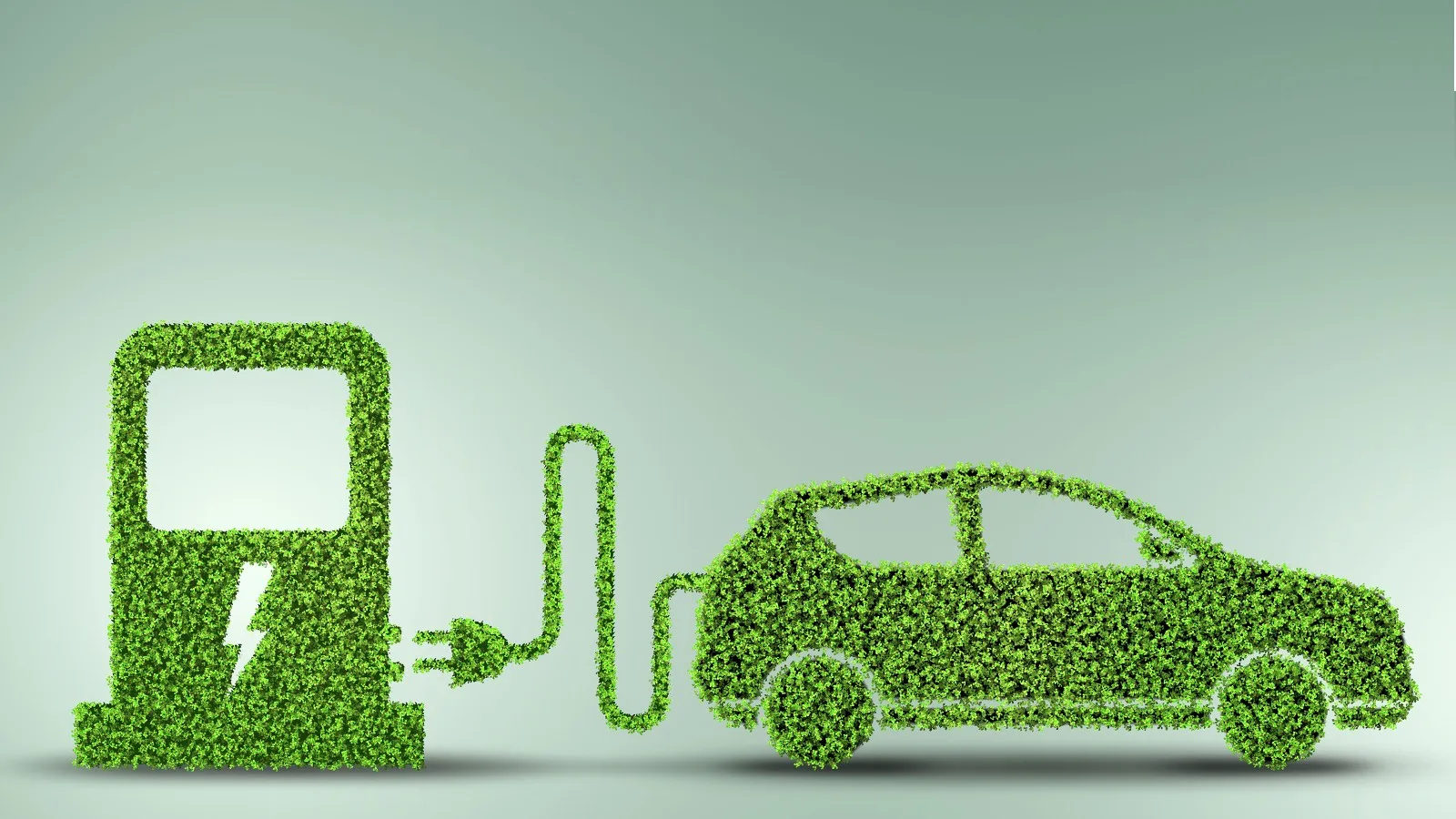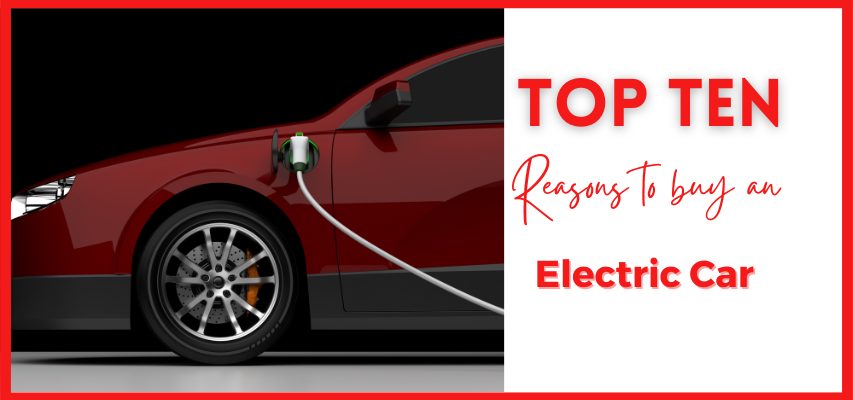In this article, we explore the top reasons to buy an electric car, which is gaining popularity, and why it is a smart choice for consumers. Electric vehicles (EVs) have emerged as a sustainable and eco-friendly option in response to growing concerns about climate change and environmental sustainability. With advances in technology and continuous performance improvements, electric cars are now a viable and attractive alternative to traditional gasoline-powered vehicles.
Also, read: Top 10 Reasons to Buy Hybrid Cars
Going Green on the Go: Top 10 Reasons to Buy an Electric Car for a Sustainable Future
Electric cars are becoming increasingly popular, and for good reason. They offer several advantages over traditional gas cars, including lower emissions, lower running costs, and greater comfort. If you’re thinking about the top ten reasons to buy an electric car, here are the top 10 reasons to buy an electric car and why you should switch:

1. Environmental Benefits
One of the most compelling reasons to invest in an electric car is its positive impact on the environment. Unlike conventional gasoline-powered vehicles, electric cars produce zero exhaust emissions. This means they do not emit harmful pollutants such as carbon dioxide (CO2), nitrogen oxides (NOx), and particulate matter, which are major contributors to air pollution and global warming.
According to the US Environmental Protection Agency (EPA), the average gasoline car emits about 4.6 metric tons of CO2 annually. In contrast, the average electric car emits no direct tailpipe emissions, helping to reduce greenhouse gas emissions and combat climate change.
Also, read: Ten things to consider when buying a hybrid car
2. Reduced Carbon Footprint
Electric cars play a vital role in reducing your carbon footprint. By relying on electricity as a primary energy source, electric cars help reduce the demand for fossil fuels, which are major contributors to global warming and climate change.
The International Energy Agency (IEA) estimates that electric vehicles can reduce carbon emissions over the lifetime of the vehicle by up to 50% compared to conventional petrol-powered cars. This reduction in carbon emissions is significant for mitigating the effects of climate change and promoting a more sustainable future.
3. Cost Savings
While the initial cost of an electric vehicle may be higher than that of a traditional car, the lower operating and maintenance costs can more than make up the difference in the long run.
According to the US Department of Energy (DOE), the average annual electricity cost to run an EV is around $500, while the average fuel cost for a gasoline car is around $1,100. In addition, electric cars require less maintenance because they have fewer moving parts and no need to change the engine oil, leading to potential savings in repair and maintenance costs.
Also, read: Ten tips for improving your car’s fuel economy
4. Government Incentives
Many governments around the world are offering financial incentives to encourage the adoption of electric vehicles. These incentives can include tax breaks, rebates, reduced registration fees, and access to carpool lanes.
For example, in the United States, federal tax credits of up to $7,500 are available for eligible purchases of electric vehicles. These incentives not only help make electric cars more affordable for consumers but also play a critical role in promoting the widespread adoption of cleaner transportation options.
5. Energy Efficiency
Electric cars are more energy efficient than their gasoline counterparts. Traditional internal combustion engines waste a significant amount of energy as heat, while electric motors convert a higher percentage of energy from the battery to drive the wheels.
According to the US Department of Energy, electric cars can be two to three times more energy efficient than gasoline cars. This higher efficiency translates into better use of energy resources and lowers overall energy consumption.
Also, read: Top Ten things to do when your car battery dies
6. Quiet and Smooth Operation
Electric cars operate quietly and offer a smooth ride. Without the noise of the internal combustion engine, electric cars create a calm and quiet environment for the driver and passengers.
The quiet operation of electric vehicles helps to reduce noise pollution, especially in urban areas, making buying an electric car an ideal choice for those looking for a quieter and more pleasant driving experience.
7. Advancements in Technology
The electric vehicle industry is evolving rapidly, with constant advances in battery technology, charging infrastructure, and range. Modern electric cars are equipped with state-of-the-art features and innovative assistance technologies that make them safer and more comfortable to drive.
The range of electric cars has improved significantly in recent years, with many models now able to travel over 200 miles on a single charge. This increase in range addresses one of the initial concerns about the limited range of electric vehicles and makes them more practical for everyday use.
Also, read: Top Ten Battery Technologies That Will Revolutionize the Automotive Industry
8. Low Maintenance
Electric cars have fewer moving parts than traditional vehicles, resulting in lower maintenance requirements. With no need to change engine oil and fewer worn parts, EV owners can save on maintenance costs over the life of the vehicle.
According to Consumer Reports, EVs generally have lower maintenance and repair costs compared to gasoline-powered cars. This cost advantage adds to the overall appeal of electric vehicles and makes them an economical choice for consumers.
9. Energy Independence
By switching to electric cars, countries can reduce their dependence on imported oil and increase their energy security. With the ability to generate electricity from renewable sources such as solar and wind, electric vehicles contribute to a more sustainable energy future.
The International Renewable Energy Agency (IRENA) projects that the widespread adoption of electric vehicles could reduce global oil demand by 21 million barrels per day by 2030. This reduction in oil consumption can have significant geopolitical and economic consequences and positively affect the energy independence of countries.
Also, read: Top 10 best-selling cars in the world
10. Positive Driving Experience
Driving an electric car offers a unique and pleasant experience. The instant torque of electric motors provides quick acceleration, making driving electric vehicles fun and responsive in city traffic and on highways.
Many electric cars also offer regenerative braking, which captures and stores energy during braking, further enhancing the driving experience and efficiency. This regenerative braking system not only increases the range of electric vehicles but also contributes to energy savings.
Additional statistics and information about electric cars
- The global electric car market is expected to grow by 20% in 2023.
- In the United States, there are over 1 million electric cars on the road.
- The average electric car can travel between 100 and 300 miles on a single charge.
- The cost of electricity to charge an electric car is typically much lower than the cost of gasoline.
- Electric cars require less maintenance than gas-powered cars.
- Electric cars produce zero emissions, which makes them better for the environment.
If you’re considering buying an electric car, I encourage you to do your research and learn more about the benefits of electric vehicles. I believe that electric cars are the future of transportation, and I’m excited to see more and more people making the switch.
Also, read: Ten best luxury cars in the world
FAQs: Reasons to buy an electric car in 2025
Q. What are the 5 advantages or Reasons to buy an electric car?
- Lower running costs.
- Low maintenance costs.
- Tax and financial benefits.
- Better performance.
- Zero tailpipe emissions.
- Easy to drive and quiet.
- Convenience of charging at home.
- No fuel, no emissions.
Q. What is the goal for electric vehicles in the US?
The Federal Government has set a goal to make half of all new vehicles sold in the U.S. zero-emission vehicles in 2030 and to build a convenient and equitable network of 500,000 chargers to help make EVs accessible to all Americans for both local and long-distance trips.
Q: Are electric cars better for the environment?
Yes, electric cars are much better for the environment compared to traditional gasoline-powered vehicles. Electric cars produce zero tailpipe emissions, which means they do not release harmful pollutants like carbon dioxide (CO2), nitrogen oxides (NOx), and particulate matter into the atmosphere. This significant reduction in emissions helps combat air pollution and contributes to the fight against climate change.
Q: How do electric cars reduce carbon emissions?
Electric cars reduce carbon emissions by relying on electricity as their primary energy source instead of fossil fuels like gasoline. When charged with electricity generated from renewable sources such as solar, wind, or hydroelectric power, electric vehicles have a much lower carbon footprint compared to gasoline-powered cars. This shift towards cleaner energy sources leads to a substantial reduction in greenhouse gas emissions over the lifetime of the vehicle.
Also, read: Top 10 Warning Signs Your Electric Vehicle Needs Service
Q: Are there any financial benefits to owning an electric car?
Yes, owning an electric car can lead to long-term cost savings. Although the upfront price of electric vehicles may be higher than that of traditional cars, the lower operational and maintenance costs can make up for the difference in the long run. Electric cars require less maintenance due to their simpler design with fewer moving parts, and electricity is generally a cheaper fuel option compared to gasoline.
Q: Are there any government incentives for purchasing electric cars?
Yes, many governments around the world offer financial incentives to encourage the adoption of electric vehicles. These incentives can include tax credits, rebates, reduced registration fees, and access to carpool lanes. For example, in the United States, there are federal tax credits of up to $7,500 available for qualifying electric car purchases, making electric cars more affordable for consumers.
Also, read: Top 10 Advancements in Electric Vehicle Charging Infrastructure in 2024
Q: How energy-efficient are electric cars compared to gasoline cars?
Electric cars are much more energy-efficient than gasoline-powered vehicles. Traditional internal combustion engines in gasoline cars waste a significant amount of energy as heat, whereas electric motors in EVs convert a higher percentage of energy from the battery to power the wheels. This higher efficiency leads to better use of energy resources and reduces overall energy consumption.
Q: What advancements have been made in electric vehicle technology?
The electric vehicle industry is constantly evolving, with continuous advancements in battery technology, charging infrastructure, and driving range. Modern electric cars are equipped with cutting-edge features and innovative driver-assistance technologies, making them safer and more convenient to drive. The driving range of electric cars has significantly improved in recent years, with many models now capable of traveling over 200 miles on a single charge.
Also, read; Top 10 Emerging Technologies for Autonomous Cars in 2024
Conclusion
The top 10 reasons to buy an electric car show the numerous advantages that electric cars offer over conventional gasoline-powered cars. From their positive environmental impact and significant cost savings to the constant advancement of technology and smooth driving, electric cars are a promising solution for solving environmental problems and promoting sustainable transport.
As the world moves towards a greener and more sustainable future, electric vehicles are poised to play a key role in reducing carbon emissions and contributing to a cleaner and healthier atmosphere. From their positive impact on the environment to cost savings, energy efficiency, and advances in technology, electric vehicles are the future of transportation.
Also, Read: Top ten reasons to buy a hybrid car


































